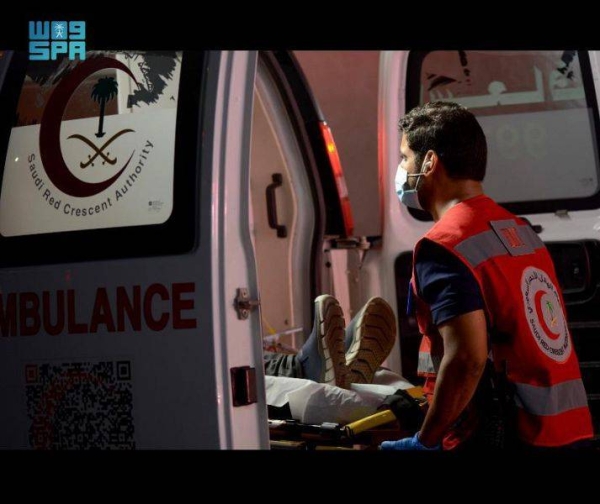
Lt. Gen. Muhammad Al-Bassami, director of Public Security, said that punitive measures will be taken against motorists who fail to make way for ambulances.
“The failure to give way to emergency vehicles will be monitored as a violation and penalty will be taken against those committing the violation,” he said while addressing the opening session of the scientific conference for smart practices in dealing with emergency cases here on Wednesday.
Al-Bassami said that the support and directives of Minister of Interior Prince Abdulaziz bin Saud bin Naif have accelerated the pace of the digital transformation and the automation of all security, traffic, and service procedures. He said that this would have a positive impact on economic and social aspects, besides contributing to raising the level of traffic safety. “The imposition of penalties against those who fail to give way for ambulances will be initially imposed by the Saudi Red Crescent Authority paramedics through its Basher system,” he said.
The interactive panel session was also attended by CEO of the Nuclear and Radiological Regulatory Commission Dr. Khaled Al-Issa, President of the Saudi Red Crescent Authority, Dr. Jalal Al-Owais, CEO of the Ministry of Interior Development Program Dr. Nabil Al-Dabal, and Vice President of Aramco for Industrial Safety and Security, Eng. Ali Al-Zahrani. The State Secretary of the Romanian Ministry of Interior Dr. Raed Arafat attended the session virtually.
The participants talked about making use of artificial intelligence in managing emergencies and crises, according to the tasks and responsibilities of each party, and its reflection on the development and improvement of the services provided. On his part, Dr. Raed Arafat reviewed his country’s handling of the coronavirus pandemic.
The first day of the scientific sessions began with a focus on topics such as technical systems and artificial intelligence for emergency management; information integration in the face of oil spills; the development of geospatial databases for emergency sites; the use of geographic information systems in emergency management, and the design of a geospatial interface for early warning of the dangers of natural disasters.











